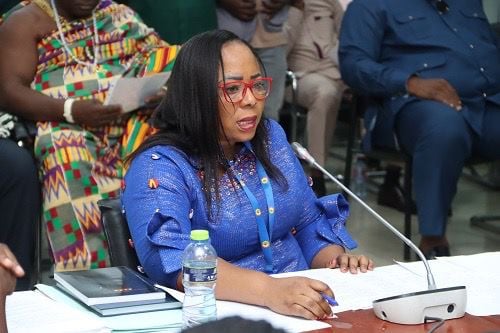The recent debate surrounding the use of “Akwaaba,” the Akan word for welcome, at national tourist sites in Accra, Ghana, has ignited discussions about cultural representation and linguistic inclusivity. Ga indigenes, the traditional custodians of the land on which Accra is built, have voiced concerns about the marginalization of their language and culture, advocating for the use of “Oobakɛ,” the Ga equivalent of welcome, at these prominent locations. This call for linguistic recognition stems from a perceived imbalance in cultural representation, where the Akan language, while widely spoken, is seen as overshadowing the indigenous Ga language within the capital city. The debate highlights the complexities of national identity formation in a multicultural nation, where balancing the recognition of diverse cultural heritages with the promotion of a unified national identity presents a constant challenge.
The controversy gained significant traction following observations at Nkrumah’s Mausoleum, a prominent national landmark, where welcome inscriptions were displayed in Akan, Ewe, and English, but notably excluded Ga-Dangme. This omission sparked a wave of protests on social media and fueled calls for greater recognition of the Ga language and culture within national spaces. The incident served as a catalyst, bringing to the forefront long-standing grievances about the perceived neglect of Ga cultural heritage in the capital city. The debate surrounding “Akwaaba” versus “Oobakɛ” extends beyond mere linguistic preference, delving into deeper questions of cultural ownership, historical recognition, and the equitable representation of diverse ethnic groups within the national narrative.
Linda Ocloo, the Greater Accra Regional Minister, has publicly endorsed the calls for greater inclusion of the Ga language, stating that these concerns are valid and warrant attention. Her support reflects a growing awareness within government circles of the importance of addressing cultural sensitivities and promoting inclusivity in public spaces. Acknowledging Accra’s historical and cultural roots as Ga-Adangme land, Ocloo emphasized the need for respect and recognition of the indigenous culture, particularly within the capital city. Her stance suggests a potential shift towards more inclusive policies that prioritize the representation of diverse cultural heritages within national landmarks and tourist destinations.
However, this call for linguistic inclusivity has also sparked counter-arguments. Legal scholar and social commentator Professor Stephen Kwaku Asare, widely known as Kwaku Azar, has advocated for the continued use of “Akwaaba” as a unifying national symbol, arguing that such widely adopted terms should be seen as part of Ghana’s shared heritage rather than a source of contention. Professor Asare suggests viewing “Akwaaba” as a symbol of national unity, transcending individual ethnic identities and embracing the diversity of Ghanaian culture. This perspective highlights the delicate balance between promoting specific cultural identities and fostering a sense of collective national belonging.
The debate between proponents of “Oobakɛ” and those who favor retaining “Akwaaba” underscores the complex relationship between language, culture, and national identity. The use of language in public spaces becomes a symbolic representation of power dynamics, cultural dominance, and the recognition afforded to different ethnic groups. The controversy highlights the importance of finding mechanisms for inclusive representation within a multicultural nation, ensuring that all citizens feel valued and recognized within the national narrative.
Ultimately, the discussion surrounding “Akwaaba” and “Oobakɛ” extends beyond a mere linguistic dispute, reflecting broader societal concerns about cultural preservation, historical recognition, and the creation of a truly inclusive national identity. Finding a resolution requires a nuanced approach that respects the cultural heritage of all ethnic groups while simultaneously promoting a sense of national unity and belonging. The ongoing debate serves as a crucial reminder of the ongoing negotiation of cultural identity within a diverse nation and the importance of ensuring that all voices are heard and respected in the shaping of national narratives.


